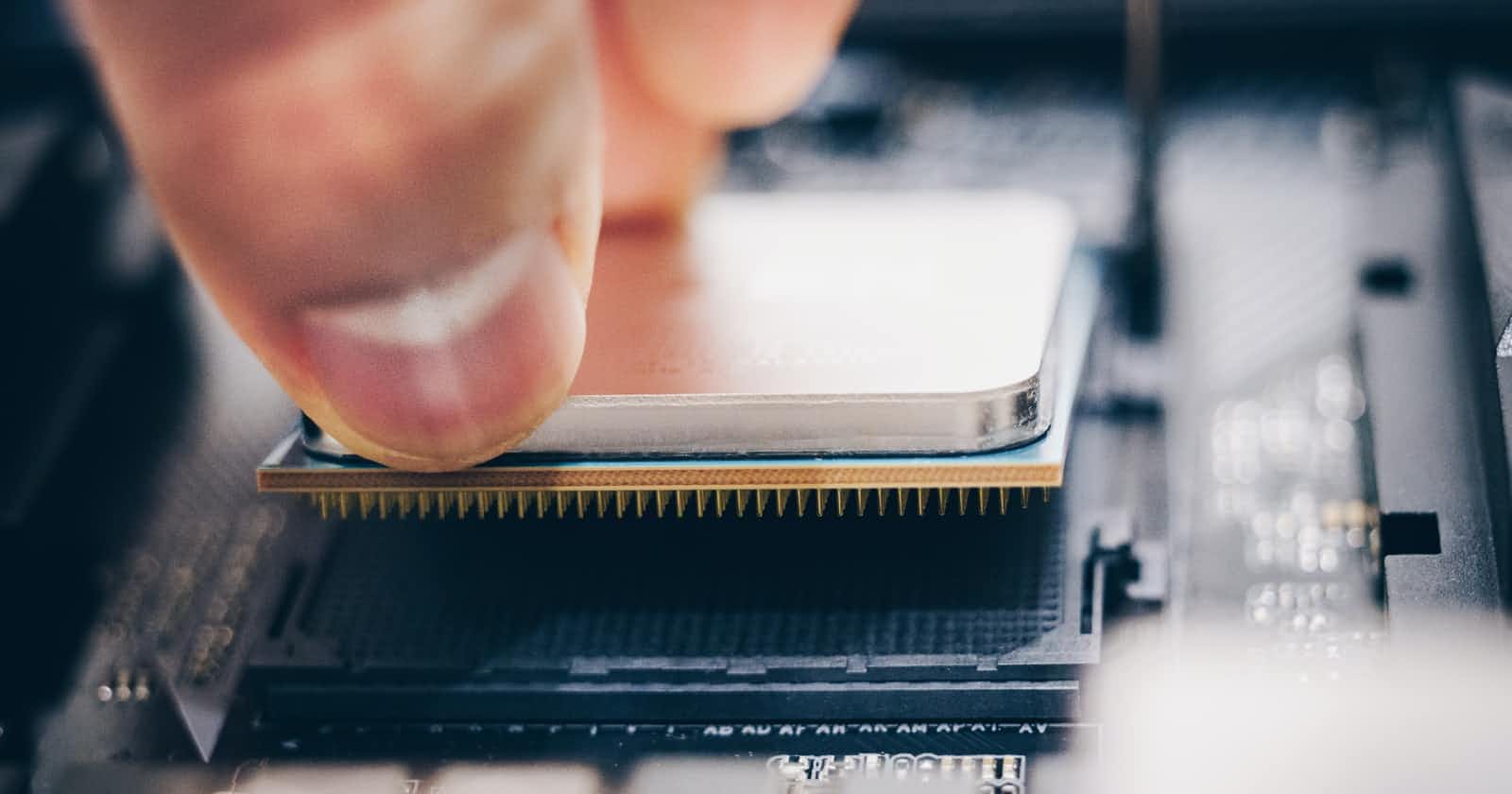
Photo by Fidel Fernando on Unsplash
Cores and Threads... What are they?
do more cores mean more performance?
Let's see where it began first...
In 2018 when I bought my first smartphone (actually my mom bought it for me). I came across this fancy term "octa-core" in my mobile's settings. I thought octa means 8 and this term means 8 cores and I considered myself a genius for my deductive skills while completely ignoring the fact that I don't know what a core means.
This term appeared again when I wanted to buy a laptop in 2020 (you guessed it right! my mom again). I got a laptop with an I5 processor. But when I was combing the internet like a maniac about these processors, "Core" came again with his friend, a new term called "Thread". Apparently the I5 I bought had 6 cores and 12 threads. I ignored those terms again.
In 2021 again in my third year of engineering, we had a Java class and our professor mentioned that Java is a multi-threaded language. He didn't care to elaborate on the term and I didn't care to ask him that... (those were online classes by the way)
After these terms haunted me for three years, I finally decided to learn about them. So I went to this secret place where people learn things... (It was YouTube). Here is what I found about it...
Core
A Core is a division of CPU. When we talk about a Quad-Core processor or a processor with 4 Cores. That means the Processor has been split into 4 parts.
This man named Gordon Moore who is co-founder of Intel made an observation that we now call Moore's Law. Observing the rapid increase in performance of microchips he stated that transistors on a microchip will be doubled every two years while the price is halved. Those were the days when the number of transistors and clock speed are the only parameters describing the performance of a microchip or a processor.
All changed when Multi-Core processors entered the market. The concept behind that is pretty simple. If we have two cores on a processor, each core can perform a different task individually. So instead of struggling to increase the speed of operation, now our processor can perform two tasks simultaneously. The same goes for 4 cores and 6 cores. That means my I5 processor can handle 6 different tasks simultaneously as per the knowledge I have this far.
Thread
But what is a thread? I asked myself. Then I remembered that know nothing about it, and I asked google.
A thread essentially means a sequence of operations (sequence of 1's and 0's). For a processor to perform a task or do a computation, it needs instructions and data and this thread carries these sequences. Think of a thread as a conveyer belt carrying material into a machine (in this case, a processor). Let's consider we have one thread per core in my 6 core processor. So 6 tasks are being handled by the CPU and these threads are carrying data into them.
Wait! but my processor has 12 threads, which means we have 2 threads per core. This actually means two different tasks can send(or receive) instructions and data to a core. The core handles these threads based on what the OS tells it to do. Generally, a core executes both the threads simultaneously, actually what happens is the core switches between these threads in an optimised way making it look like it is executing both threads simultaneously which is called Concurrency.
This now means that my I5 processor can handle 12 tasks at a time.
So the term 6 Cores, 12 Threads means that the processor has 6 physical cores and 12 logical cores.
My Crazy Comparision
Spoiler alert: This is going to be really crazy
Now let's think of a core as a waiter in a restaurant. If a core is a waiter you must've understood that a restaurant is a computer. Now 6 waiters can deliver 6 different orders to different tables. Now if we make our waiters carry 2 orders at a time like assigning two threads per core. They can actually deliver 12 different orders.
I know that comparing a CPU core to a waiter is crazy, but did it anyway.
Do more cores mean more performance?
Technically No, but Yes. If you are performing one task on a single-core processor with a clock speed of 2.4 GHz and the same task on an octa-core processor with a clock speed of 1.8GHz. The single-core processor wins. But in real-world processors don't handle just one task. So, when there is a complex process with multiple tasks, a multi-core processor actually wins.
Is a multi-core processor more powerful than a single-core processor?
Not necessarily. But it is more efficient.
PS
Thank you for reading this article
If you think adding something to this article makes it better... Comment down or contact me at Email: akashdoppalapudi2001@gmail.com.

